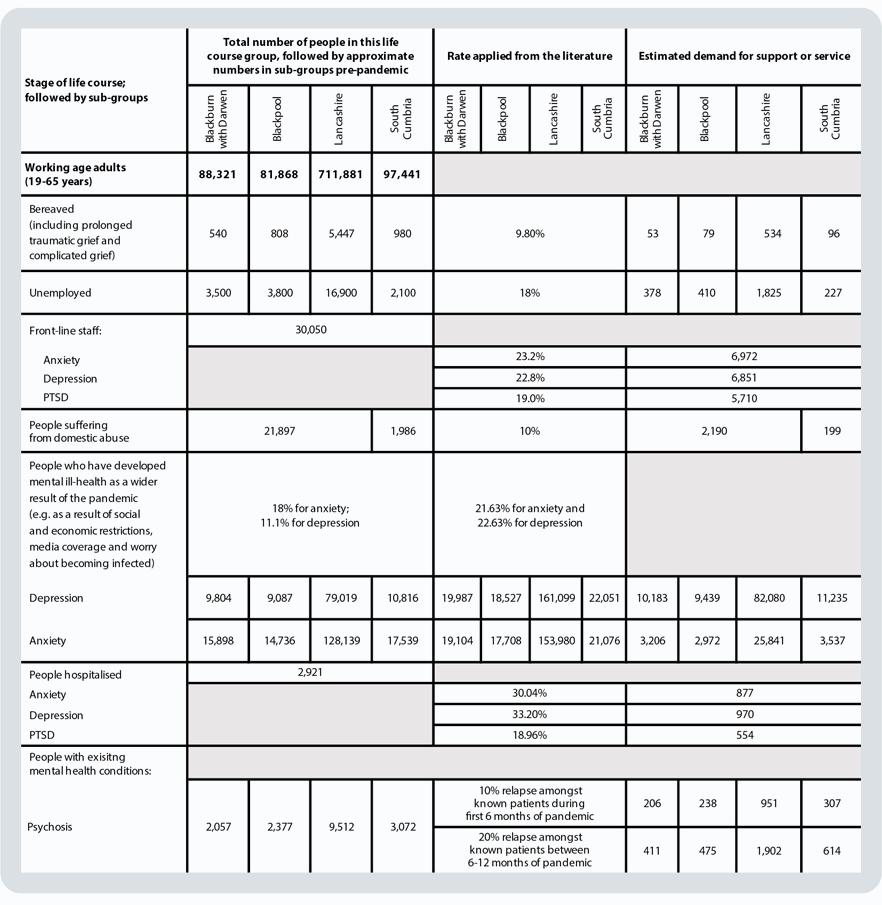CASE STUDY
Assessing the demand for mental health services generated by the coronavirus pandemic
Public health specialists working in NHS provider organisations can make many contributions to population health.
One example is from a group of public health specialists (based in Cambridge, Lancashire and South Cumbria, and the Midlands), most in mental health trusts, who took an evidence-based approach to assessing the demand that would be placed on those trusts as a result of people’s pandemic experience. Although there has been recognition that the pandemic will have a significant impact on population mental health and, consequently, potential demand for mental health services A B C no attempts to quantify this demand were found. This group, therefore, addressed this gap through the development of a series of assumptions that enables COVID-19 generated demand for mental health services to be estimated for local areas across England. These early estimates can be used to inform local restoration and recovery service planning. This work also promotes awareness of the extent of mental ill-health that could arise from the pandemic.
Connections that existed as a result of the national provider network led to the formation of a group who over a two-month period, searched and assessed grey, pre-publication and peer-reviewed literature. Papers were included if they contained prevalence figures of mental illness and used a hierarchy relating to disease or event (e.g. specific to COVID-19 was the highest ranking), alongside quality appraisal of the papers. From this sub-populations that were potentially at higher risk of mental health morbidity secondary to the pandemic were identified. The estimates of COVID-19 generated mental health demand within each sub-population were then applied to the local health authority populations, see figure 1. Where no evidence was identified, expert consensus was sought from the academic consultant psychiatrists. The suite of estimates was finalised in June 2020. The assumptions were also used by the Midlands Partnership Trust to develop an analytics model dashboard which estimates current and future mental health implications of the COVID-19 pandemic.
Figure 8
Example of application of published studies to local populations

